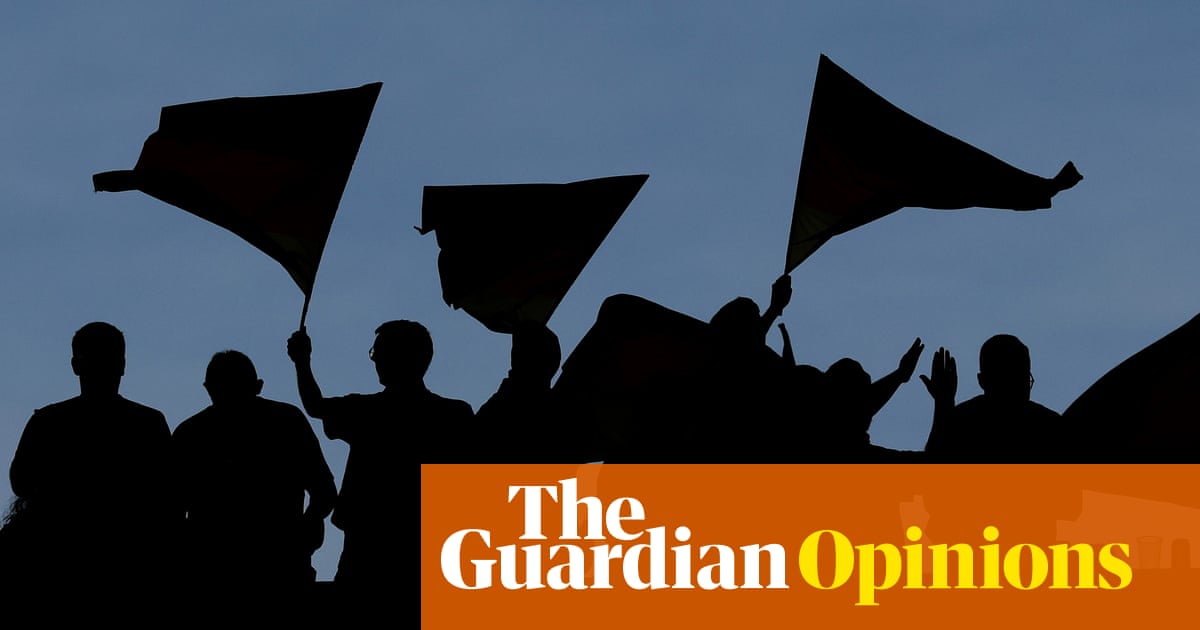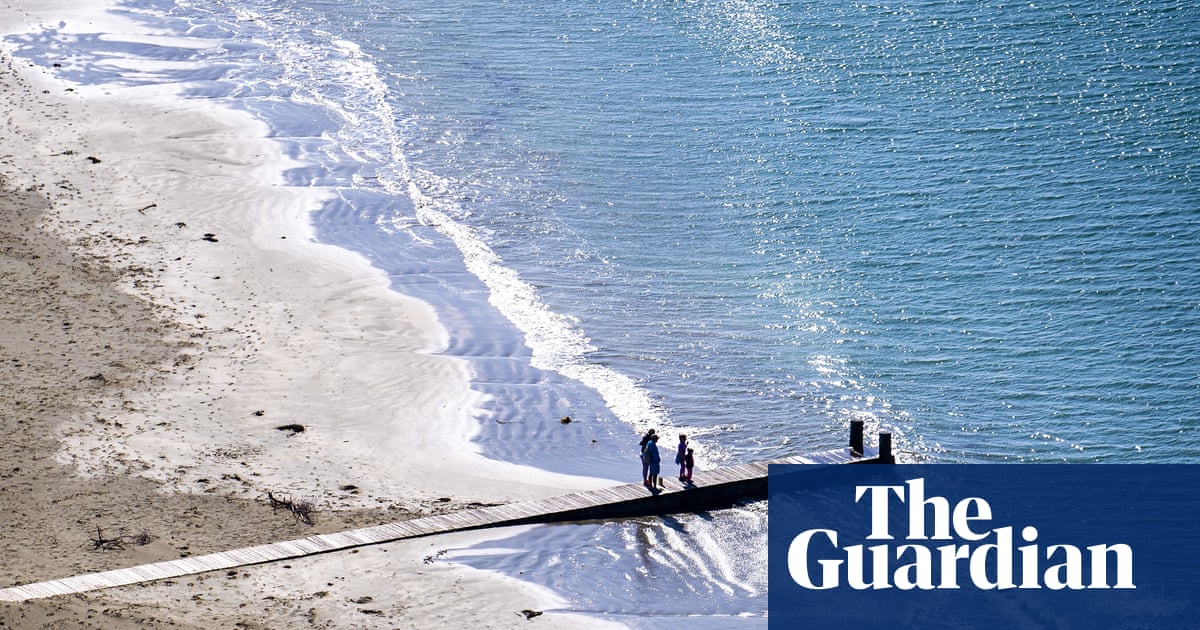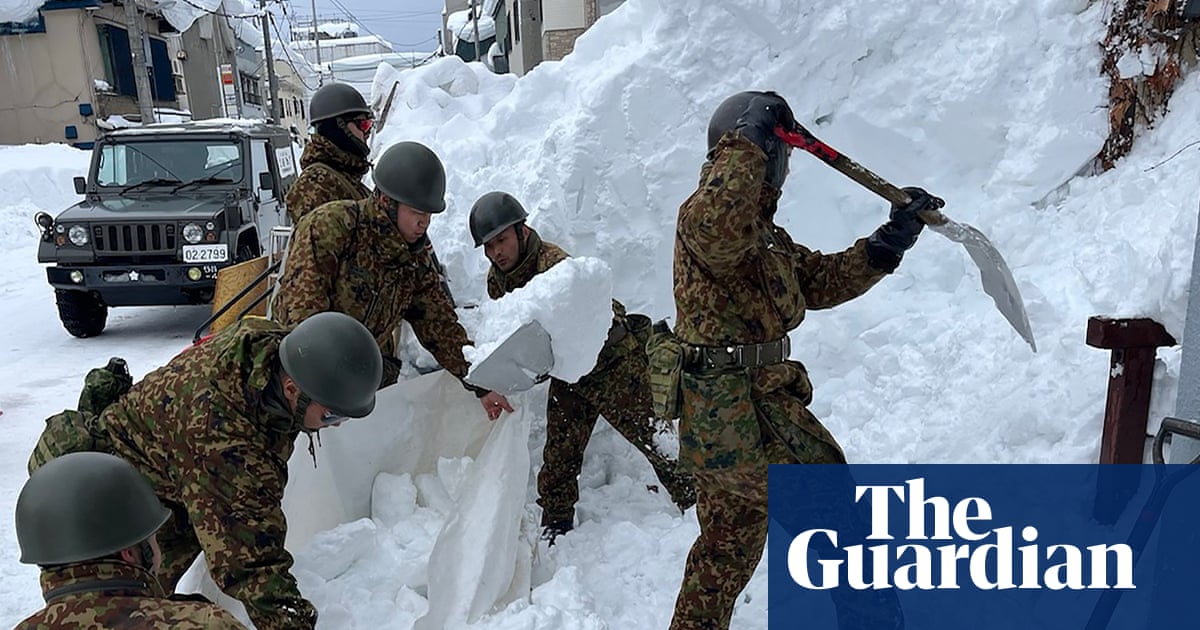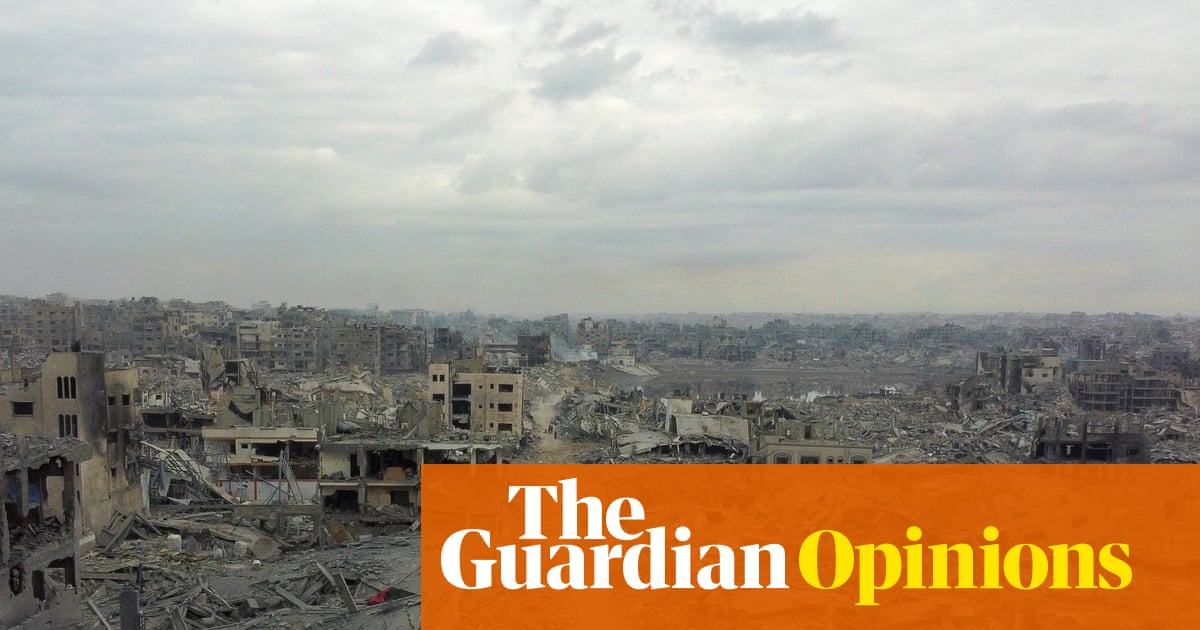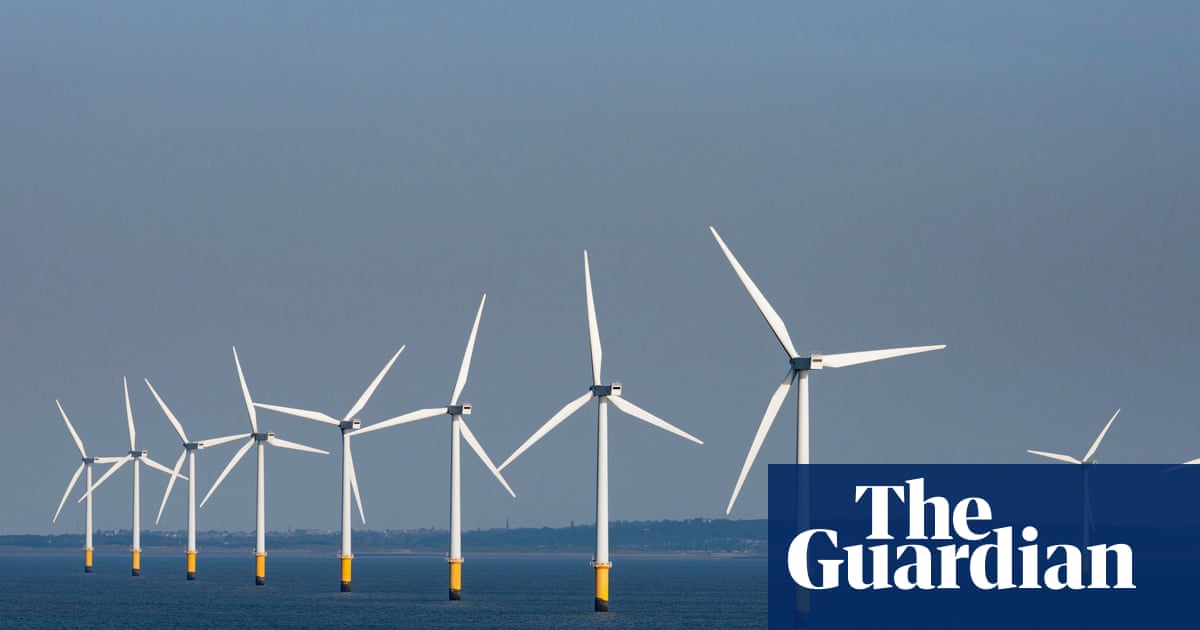'Ciao, bambino!' - Paris climate agreement architect on US withdrawal
Dharna Noor
“Ciao, bambino!” That was the message Christiana Figueres, former executive secretary of the United Nations framework convention on climate change, had for the US upon its recent exit from the Paris Climate Agreement.
The world’s largest historical emitter also chose not to send a delegation to the negotiations. “I think it actually is a good thing,” Figueres said about the US’s absence from the talks at a press conference on Tuesday.
Concerns about backdoor US influence at the talks are high, particularly in light of its role in derailing a global carbon fee on shipping at an international maritime meeting last month. There, the Trump administration threatened to impose sanctions and visa restrictions on nations that supported the deal, even reportedly menacing some country’s officials during coffee breaks.
Since US negotiators won’t be present at the climate conference, “they won’t be able to do their direct bullying,” Figueres told the Guardian.
Even if the US attempts to influence the fights, she said it won’t be successful because so many countries have realised climate action is in their best interests.
“Honestly, the decarbonisation of the global economy is irreversible,” she said. “Momentum is building into the point where it is simply unstoppable, with or without the United States.”
Key events Show key events only Please turn on JavaScript to use this feature
In the run-up to Cop30, the Guardian published a series of articles looking at the ten biggest polluters of greenhouse gas, and their plans to clean up. Here’s a piece my colleague Jonathan Watts wrote in September about China, which according to an analysis published today has plateaued its emissions.
Chinese power took on an old-fashioned hue in the past week with a huge military parade, a gathering of former allies Russia and North Korea, and President Xi Jinping’s defiant vow not to be intimidated by bullies.
That display reminded many of the cold war, but it captured only a fraction of China’s far greater modern influence, primarily built on a formidable economy, dramatic advancements in renewable energy, and a willingness to engage globally with the greatest crisis facing humanity: climate breakdown.
In that sense, the tanks, cannon and missiles that filed past Tiananmen Square may well prove less important in reshaping the world order than the wind turbines, solar panels and electric cars that are churning out of Chinese factories on to fields and roads all over the planet. They are the reason China has already won the battle for the energy of the 21st century.
If history is any guide, the country that dominates energy usually dominates economics and politics, which is why it is not just old war allies that are cosying up to Beijing. Narendra Modi, the president of longtime rival India, also visited China last week for the biggest ever meeting of the Shanghai Cooperation Organisation along with dozens of other regional leaders. The European Commission president, Ursula von der Leyen, led a delegation to Beijing this summer to coordinate climate policy. The Brazilian executive secretary of Cop30 will visit next week with a similar mission, knowing the success or failure of the annual climate summit now depends on China more than any other nation.
Read the full story here.
'Ciao, bambino!' - Paris climate agreement architect on US withdrawal
Dharna Noor
“Ciao, bambino!” That was the message Christiana Figueres, former executive secretary of the United Nations framework convention on climate change, had for the US upon its recent exit from the Paris Climate Agreement.
The world’s largest historical emitter also chose not to send a delegation to the negotiations. “I think it actually is a good thing,” Figueres said about the US’s absence from the talks at a press conference on Tuesday.
Concerns about backdoor US influence at the talks are high, particularly in light of its role in derailing a global carbon fee on shipping at an international maritime meeting last month. There, the Trump administration threatened to impose sanctions and visa restrictions on nations that supported the deal, even reportedly menacing some country’s officials during coffee breaks.
Since US negotiators won’t be present at the climate conference, “they won’t be able to do their direct bullying,” Figueres told the Guardian.
Even if the US attempts to influence the fights, she said it won’t be successful because so many countries have realised climate action is in their best interests.
“Honestly, the decarbonisation of the global economy is irreversible,” she said. “Momentum is building into the point where it is simply unstoppable, with or without the United States.”
If you worry about your carbon footprint but still find yourself tossing out mouldy bread or expired milk, you are not alone.
Just 30 countries attending COP30 include food loss or waste in their national climate action plans, a new analysis has found, missing out on what its authors call a “huge opportunity” to cut planet-heating pollution.
The most recent estimates from the UN Environment Program suggest a staggering 8-10% of greenhouse gas emissions come from food that is never even eaten. Food ends up in the bin at every stage of the supply chain - from farms to warehouses to supermarkets to kitchens – but little effort has been spent tackling food loss and waste.
The Waste and Resources Action Programme (WRAP), the nonprofit that carried out the analysis, is pushing for greater action of food loss and waste at COP30 today, together with two other NGOs, the Global FoodBanking Network and ReFED.
“Reducing food waste is one of the fastest, most practical ways to cut emissions, ease pressure on supply chains, and make better use of the resources we already have,” said Catherine David, CEO of WRAP.
The group found small progress since they carried out the analysis last year, with six more countries having made commitments to tackle food loss and/or waste.
In total, just seven countries - United Arab Emirates, Jordan, Uruguay, Cambodia, Chile, Colombia and Indonesia - have committed to reducing both food loss and waste. The UK is the only country in Europe to address either of the issues, with a commitment to reduce food waste.
“To build a truly sustainable food system, we must rethink how we value food, from farm to fork and beyond,” said David.
Chinese emissions flatline, analysis finds

Amy Hawkins
China’s carbon dioxide emissions have been flat or falling for 18 months, analysis reveals, adding evidence to the hope that the world’s biggest polluter has managed to hit its target of peak CO2 emissions well ahead of schedule.
Rapid increases in the deployment of solar and wind power generation – which grew by 46% and 11% respectively in the third quarter of this year – meant the country’s energy sector emissions remained flat, even as the demand for electricity increased.
China added 240GW of solar capacity in the first nine months of this year, and 61GW of wind, putting it on track for another renewable record in 2025. Last year, the country installed 333GW of solar power, more than the rest of the world combined.
The analysis by the Centre for Research on Energy and Clean Air (Crea), for the science and climate policy website Carbon Brief, found China’s CO2 emissions were unchanged from a year earlier in the third quarter of 2025, thanks in part to declining emissions in the travel, cement and steel industries.
The findings come as global leaders gather in Brazil for Cop30, which is taking place against a backdrop of increasing urgency in the fight against the climate crisis. China’s president, Xi Jinping, did not attend the leaders’ summit at the UN climate conference, but the Chinese delegation are present for the talks. Xi’s US counterpart, Donald Trump, also did not attend and has not sent a negotiation team.
Read the full story here.
Sometimes it is easy to lose sight of what climate negotiations are really about. This is Paul Gilbert’s moving story, as told to my colleague Sandra Laville.
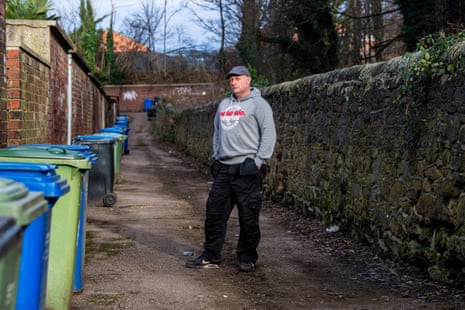
My mum rang me to tell me there was water coming into the house. She sounded fine, she wasn’t panicking, just wanted to let me know so I wouldn’t worry. But when I rang her back later, the telephone was dead.
When we eventually got into the house the next day, I found the phone downstairs near her body. It was floating in the water next to her; the flood waters had come in a torrent in less than two minutes from ankle to waist height.
My mum, Maureen Gilbert, had lived in her house in Tapton Terrace, Chesterfield, for 83 years, her whole life. I was born there 49 years ago. These houses have been up standing for 120 years, and in all the time my mum lived there, we had never had any floods until 2007, when the water probably got up to about 4ft. But this time there was nearly 6ft of water in the house.
I had visited her in the morning, after the flood alert was made, and left about 12 noon. I wasn’t unduly worried; I glanced at the river levels as I left.
By 1.20pm she rang me when I was home to tell me there was water coming in. I said to her: “Are you upstairs?” She said she was just getting her stuff together to go upstairs. I told her to flip the electrics off and go upstairs; she has a kettle and everything up there, and I would ring her back after some calls I had to make.
I made a telephone call to sort out my daughter coming home from school as she was being released early. Then I rang Mum back – it was really just a few minutes later but the phone was dead.
It took me six hours to get across Chesterfield back to the terrace. It was chaos, water everywhere, the roads were gridlocked. It was 6.45pm when I got back to her house.
Read the full story here.
Hello, this is Ajit Niranjan taking over the blog for the next few hours. If you’re in Belém and have something to share - or if you’re a reader elsewhere with requests for what we should cover at Cop30 - just drop me an email on [email protected].
Climate campaigners last night confronted agribusiness lobbyists in a protest at the AgriZone, an area outside the Cop30 summit venue sponsored by Nestlé and Bayer.
The campaigners, part of the Global Campaign to Demand Climate Justice, were protesting against Brazil’s having allowed industrial agriculture companies to set up shop at the summit.
They pointed to evidence showing that industrial agriculture is a main driver of deforestation in the Amazon and produces a third of global greenhouse gas emissions.
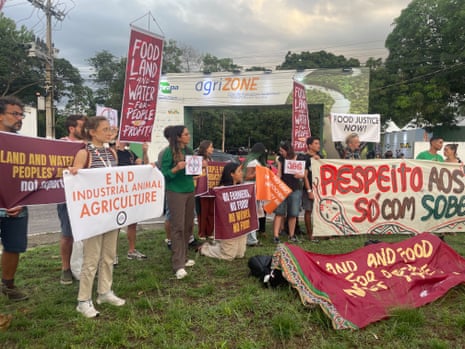
The numbers of lobbyists at Cop summits has grown in recent years. Last week the Guardian reported that more than 5,000 fossil fuel lobbyists had attended the climate talks since Cop26 in Glasgow.
“Climate spaces must stop being complicit with all forms of extractivism creating the crisis,” said Erika Xananine Calvillo Ramirez, of the Stop Financing Factory Farming Coalition. She added:
The agribusiness has been responsible for the water crisis in the Ngiwa Valley of Tehuacan region in Mexico, and they must stop greenwashing their image at COP30.

Andrea Echeverri, of the Global Forest Coalition, said:
The AgriZone is nothing more than a huge greenwashing space. While social organizations and other mortals usually compete to be heard in spaces in the Blue Zone and the Green Zone, agribusinesses have a huge space dedicated to dazzling negotiators and convincing them that they are not major polluters but rather the saviors of the planet.
The globalized agri-food system focused on livestock does not fulfill its purpose of feeding the world because it is designed to produce money, not food.
Inside the AgriZone, large companies, think tanks, and supposedly independent research centers are disguising their model with their “climate-smart” models, their smart seeds, their digitization, and their metrics, while they are producing a food and agricultural crisis and a countryside without peasants, and without memory and diversity.
Ethiopia set to host Cop32 in 2027
Cop32 will be hosted in Addis Ababa, the capital of Ethiopia, Reuters reports.
The news agency says it has been told by André Corrêa do Lago, the Cop30 president, that countries had agreed in principle to hold the 2027 edition of the UN climate summit in the east African nation.
The choice still needs to be formally adopted, in a process which is expected to take place on Tuesday, but which Reuters reported that sources said would pass without a hitch.
If it is confirmed, it means that the host of Cop32 will be decided before the host of Cop31 has been confirmed. Both Australia and Turkey are competing to host the 2026 summit, with Australia making its bid in partnership with the Pacific Islands, which are considered to be among the world’s most vulnerable places to climate change.
COP summits rotate around the world’s regions. Ethiopia launched its bid in September, and it was unanimously selected by the Bureau of African Countries despite a rival bid from Nigeria.
Hello, this is Damien Gayle at the helm of day two of the Guardian’s Cop30 liveblog coverage.
If you have any suggestions for things we could be covering from this year’s climate talks in Belém, Brazil, then send me an email to [email protected].
Negotiations begin at Cop30 after agenda agreed

Jonathan Watts
Thunder, lightning and torrential rain tore down on the Cop30 conference centre in Belém on the opening day yesterday, but the climate gathering has so far avoided the political storms that often shake the early phases of the annual talks, writes Jonathan Watts, the Guardian’s global environment writer.
How long the calm lasts will be clearer over the next two days, when the Brazilian presidency holds consultations with key nations on the items that will be discussed over the coming two weeks.
This is a diplomatic sleight of hand that has so far enabled the host to avoid the usual wrangles over the formal agenda, which have often taken several days in past conferences, holding up all other work. Yesterday, however, the agenda breezed through.

The tough discussions over contentious items will now be wrangled in small-gatherings with the presidency, while other elements in the huge programme of talks can move ahead.
It is an encouraging start for the Cop president, André Corrêa do Lago, who is one of the world’s most respected climate diplomats, having worked on environmental governance since the 1992 Earth summit in Rio de Janeiro – as he has reminded delegates.
Tougher battles lie ahead with the global political landscape continuing to create extra obstacles to progress. While many participants say they are glad the United States under Donald Trump has stayed away rather than being a disruptive presence, there is no doubt that any agreements will be weakened by the absence of the world’s biggest historical emitter and wealthiest nation.
An alternative US delegation will stage a press conference on Tuesday to demonstrate that many in the country are still in favour of ambitious action. Californian governor, Gavin Newsom, and New Mexico’s governor, Michelle Lujan Grisham, will be among a group of more than 100 political and business leaders representing subnational coalitions America Is All In, Climate Mayors, and the US Climate Alliance.
Tuesday’s thematic day covers a gamut of topics ranging from adaptation and the bioeconomy to cities and infrastructure. The hosts stress that this should not just about promises and idea exchange, but concrete policies and implementation. “Each day is intended to connect negotiations with real-world impact, offering a platform where implementation, equity, and urgency meet. Cop30 is where lived experience must translate into urgent climate action”, said Corrêa do Lago.
But for the bigger topics of emissions and finance, nations are still setting out their positions. A key debate will be whether delegates can initiate a roadmap to phase out fossil fuels, and whether it will encompass all nations.
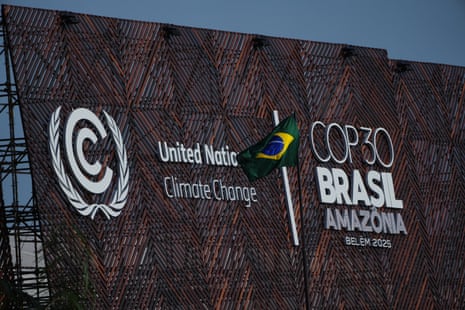
At Cop28 in Dubai, the world agreed to a transition away from fossil fuels, but this subject was barely mentioned last year at Cop29 in Baku. In preparatory meetings this year, Saudi Arabia has tried to push the subject off the Cop30 agenda. But Brazilian president Lula da Silva has given strong signals to his negotiating team that this crucial issue, which must be at the heart of any effective climate action, needs to move forward in Belém. “We need a road map so that humanity … can overcome its dependence on fossil fuels,” the veteran centre-left politician said at yesterday’s opening session.
If this idea is to have substance, it will need to be mandatory for all nations, but many of the big petroleum-producing countries will resist this. Brazil, which is one of the world’s top 10 oil and gas producers, is an ideal country to push this forward. The question is how far it is willing to go. A roadmap for the entire world would mark genuine progress. A voluntary arrangement in which some countries could opt out would be little more than greenwashing
The host hopes civil society will help to push ambition. Unlike the past three Cops, which were held in countries with varying degrees of authoritarian government, the Brazilian authorities are actively encouraging street demonstrations. Corrêa do Lago has stressed that these are essential to raising ambition inside the conference centre. Indigenous groups and NGOs have been more visible at Cop30, helping to balance out the armies of lobbyists that have dominated recent summits. A “people’s summit” will be held on Thursday and Friday, a global youth rally will take place on Friday, and the biggest demonstration is scheduled for Saturday. Many leading NGO representatives are lining up behind the call for Cop30 to begin the process of building an exit ramp from the fossil fuel era.
“It is shameful that after 30 years of climate conferences we still have no agreed plan to tackle the main driver of the climate crisis: fossil fuel use. Every day without such an agreement is a day lost in the fight against the climate crisis, exposing much of the world’s population to enormous risks. We have all the data and we know the path forward – but we still lack the political responsibility of many decision-makers,” said Marcio Astrini, executive secretary at Climate Observatory Brazil.
Saudi Arabia and like-minded nations will be trying to block or dilute these moves by focusing more strongly on the finance issue, which could easily snarl up the conference. That agenda also needs to be resolved to the satisfaction of the many countries in the global south that are already suffering from dire climate impacts.
Brazil’s skilled climate diplomats have much work to do in the huddles ahead if they are to navigate a path between these potential storms.

 2 months ago
59
2 months ago
59











